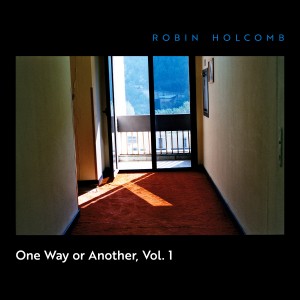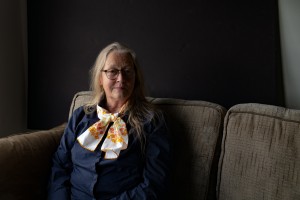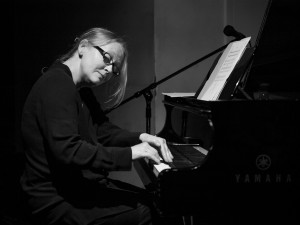
Artist
IMAGES: To download, click above. Photo one by Ernie Sapiro. Photo two by Peter Gannushkin.
Robin Holcomb
Westerlies Records
In 1990, Robin Holcomb stunned the music community with her eponymously titled album, released on Elektra/Nonesuch records. Relatively obscure, Holcomb was best known for her compositions and improvisations as a pianist, and her association with the avant-garde and New York City’s downtown scene. The songs were in equal measure gorgeous, challenging, sophisticated, direct and mysterious. The lyrics spoke to the times like no other. As critic Ben Ratliff simply stated, Holcomb’s music is “staggeringly beautiful.”
At the time the term “Americana” barely existed, but to those in the know Holcomb’s music wrote the book – with a strange mingling of a long-lost agrarian tradition, and its intersection with the myriad contradictions of modern American life. Many artists have mined the vast repertoire of early American music, but few with such originality, poetic vision, and utterly unique harmonic language. As The Village Voice commented after her first release, “Satie goes to Appalachia, Morricone goes to the Knitting Factory, and you, dear art-folk fan, die and go to heaven.”
After years of focusing primarily on her composing, her family, and her garden, Ms. Holcomb returned to the recording studio to record One Way or Another. “I wanted to revisit the past, and also make public more recent work, cover tunes, and various other projects.” The recordings offer a stark and intimate view of these masterful compositions, without production touches, orchestrations, or overdubs.
Holcomb spent four days at SnowGhost studio in Whitefish, Montana, with only her voice, a Steinway grand piano, and state of the art audio gear. Working with her husband – composer and producer Wayne Horvitz – they chose selections from her four previously released Nonesuch titles, plus compositions from two theater projects. The first, The Utopia Project, explored early 20th century experiments in collective living. The second, regarding the life of Rachel Carson, explores Carson’s public persona as a visionary envorinmentalist versus her desire for personal privacy, her battle with illness, and her struggles with personal identity.
Cast away everything empty,
You win every time in the end
Four letter words that were sent but unopened
I’m gonna lose again
In addition, a collection of cover tunes were recorded. In “I’ve Got that Feeling” by Doc Pomus, Holcomb completely reimagines the harmony and rhythm, creating a powerful and unsentimental remake of the original. “Hard Times,” with a lyric as prescient today as any in recent history, is treated for the 21st century as Charles Ives might have for the 20th, with a deeply moving and reconsidered harmonization of Stephen Foster’s original melody.
Almost 20 years ago The New York Times wrote, “The music that results is as elegantly simple as a Shaker quilt, and no less beautiful.” Today, with the release of One Way or Another, this proves more true than ever.



